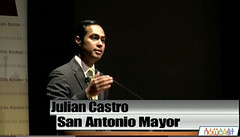Solar Power Generation in the US: Too expensive, or a bargain? by Richard Perez, ASRC, University at Albany, Ken Zweibel, GW Solar Institute, George Washington University, Thomas E. Hoff, Clean Power Research. That’s Albany, New York, but it applies even more to Albany, Georgia and Lowndes County, Georgia, since we’re so much farther south, with much more sun.
Let’s cut to the chase:
The sun supplies solar power when you need it: at the same time the sun drives heat waves.The fuel of heat waves is the sun; a heat wave cannot take place without a massive local solar energy influx. The bottom part of Figure 2 illustrates an example of a heat wave in the southeastern US in the spring of 2010 and the top part of the figure shows the cloud cover at the same time: the qualitative agreement between solar availability and the regional heat wave is striking. Quantitative evidence has also shown that the mean availability of solar generation during the largest heat wave driven rolling blackouts in the US was nearly 90% ideal (Letendre et al. 2006). One of the most convincing examples, however, is the August 2003 Northeast blackout that lasted several days and cost nearly $8 billion region wide (Perez et al., 2004). The blackout was indirectly caused by high demand, fueled by a regional heat wave3. As little as 500 MW of distributed PV region wide would have kept every single cascading failure from feeding into one another and precipitating the outage. The analysis of a similar subcontinental scale blackout in the Western US a few years before that led to nearly identical conclusions (Perez et al., 1997).
In essence, the peak load driver, the sun via heat waves and A/C demand, is also the fuel powering solar electric technologies. Because of this natural synergy, the solar technologies deliver hard wired peak shaving capability for the locations/regions with the appropriate demand mix peak loads driven by commercial/industrial A/C that is to say, much of America. This capability remains significant up to 30% capacity penetration (Perez et al., 2010), representing a deployment potential of nearly 375 GW in the US.
The paper identifies the problem I’ve encountered talking to local policy makers, especially ones associated with power companies: Continue reading









